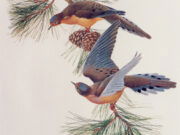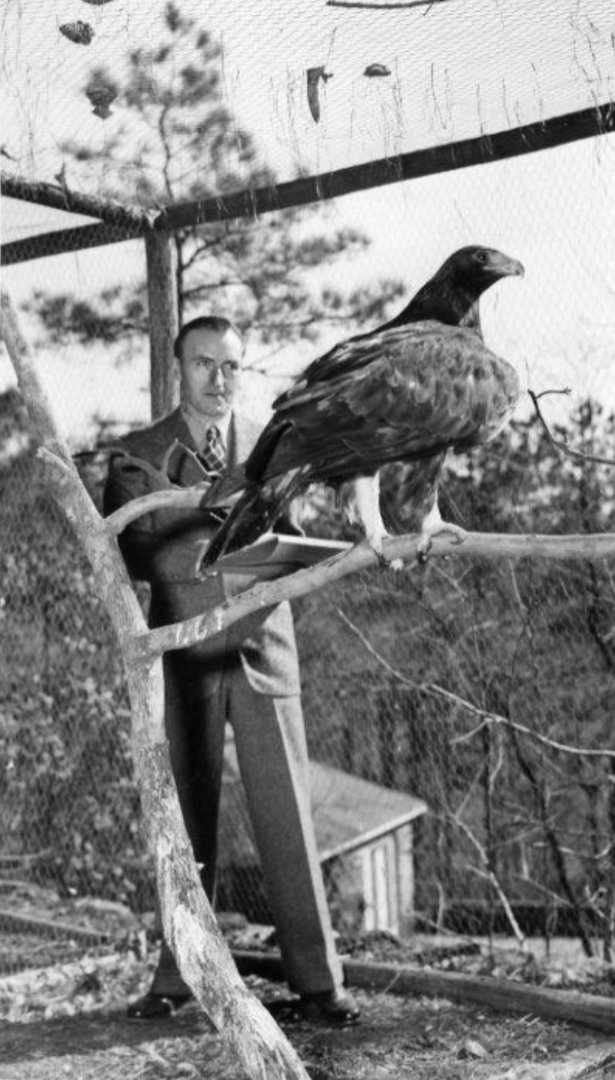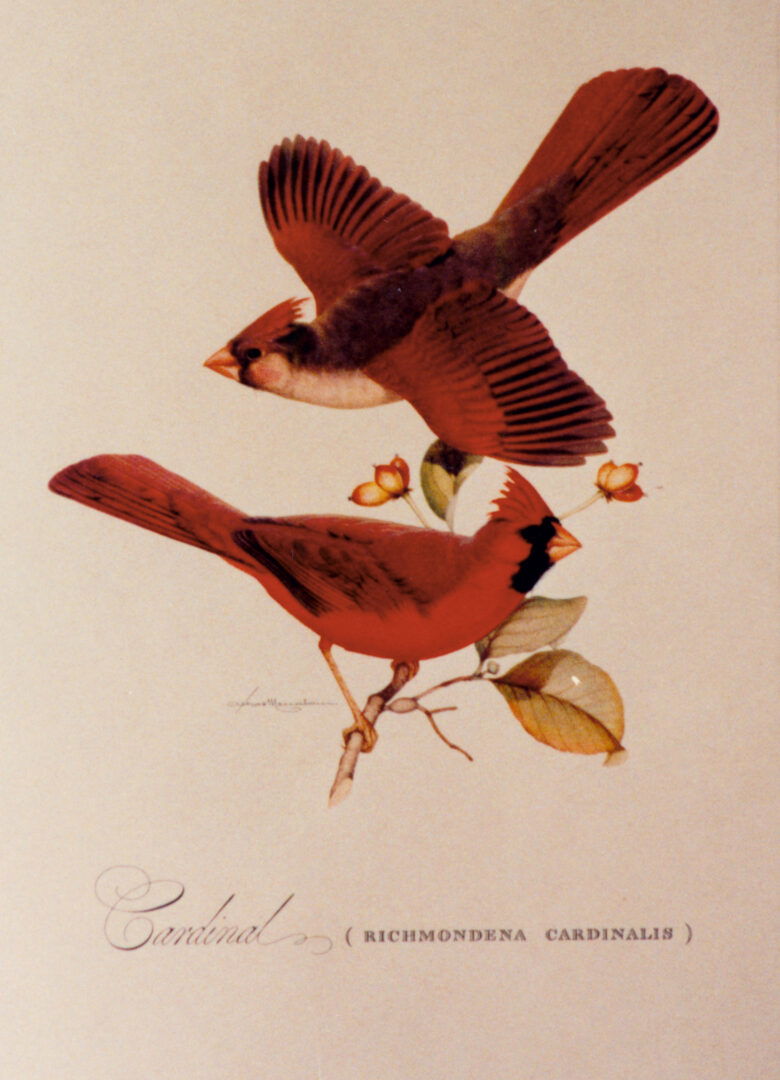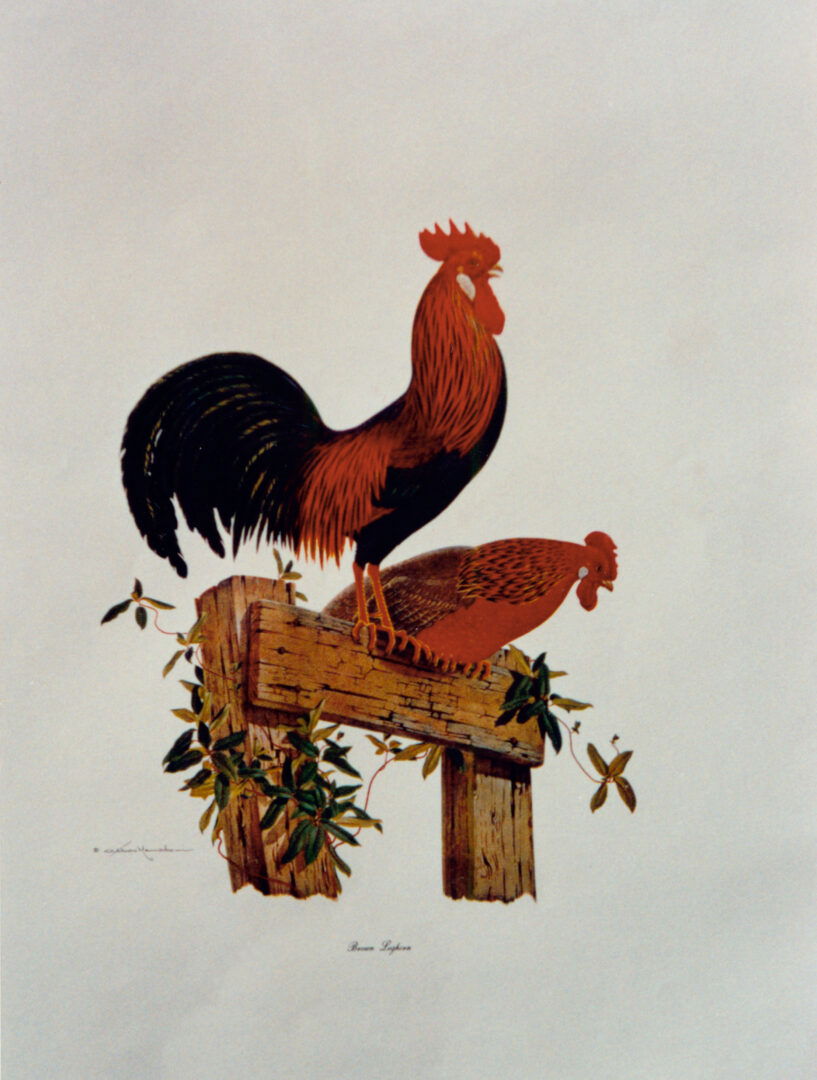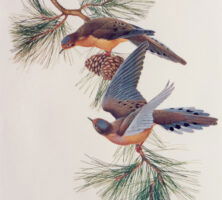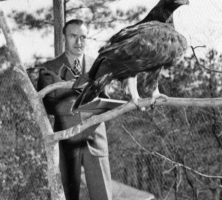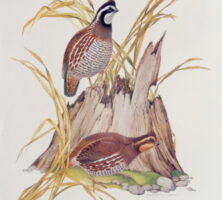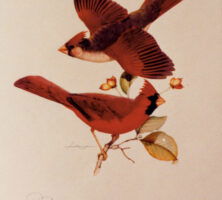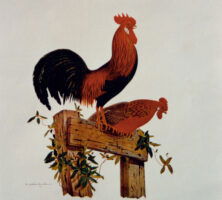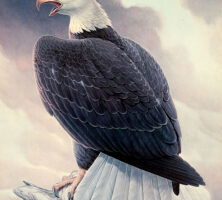Italian-born artist Athos Menaboni arrived in Georgia in the late 1920s and remained active until his death at the age of ninety-four. His early career focused primarily on painting murals and creating other decorative features for clients in Atlanta and elsewhere in the state. He then turned to painting birds from life, usually in pairs and in their natural habitats. Today Menaboni is best known for his numerous paintings of more than 160 different species of birds.
Early Life and Education
Athos Rodolfo Giorgio Alessandro Menaboni developed a profound respect for and love of nature from his early childhood in the seaport of Livorno, Italy. The second of five children, he was born on October 20, 1895, to Jenny Neri and Averardo Menaboni. His father was a ship chandler and successful businessman, which allowed the family to live prosperously. Averardo had clients from around the world who would often give him exotic animals that would become family pets. He even built his son an aviary for a collection of exotic birds.
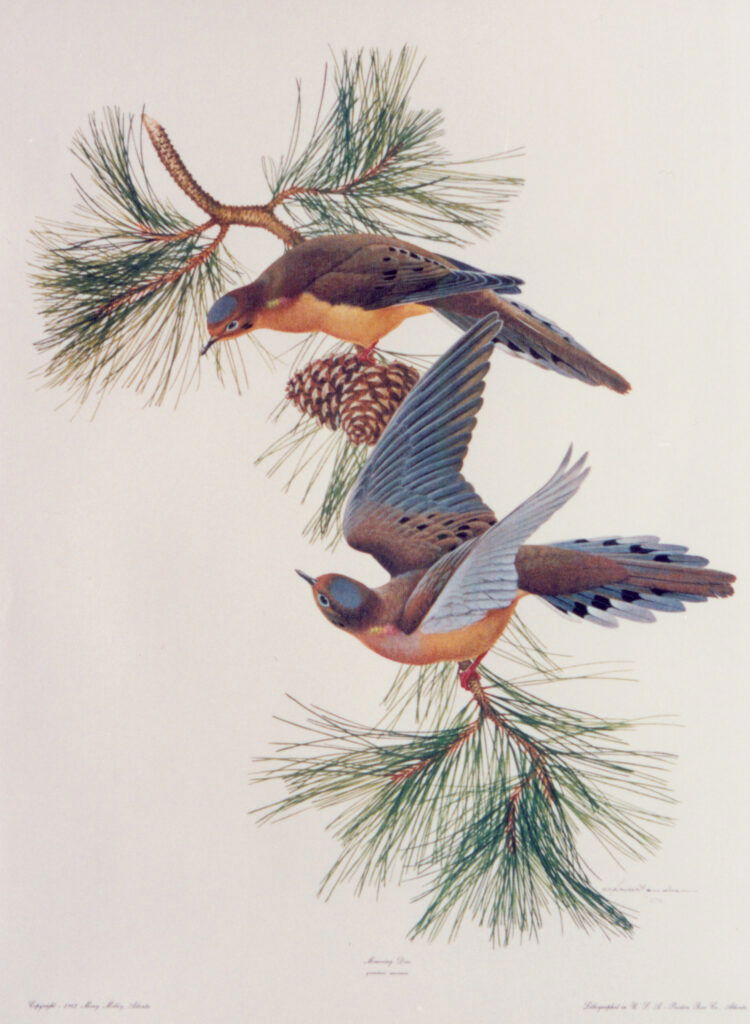
Menaboni’s artistic talent was evident in childhood, and at the age of nine he began art lessons with Ugo Manaresi, an Italian marine painter. He later became an apprentice to Charles Doudelet, a Belgian artist who specialized in painting murals. He also studied with the sculptor Pietro Gori and later attended the Academy of Fine Arts in Florence, Italy, until the outbreak in 1914 of World War I in Europe. During the war, Menaboni served in the Italian army for four years.
Loath to join the family business after the war, Menaboni joined the crew of the U.S. vessel S.S. Colthraps under Master John Hashagen, a friend of the family who sponsored Menaboni upon his arrival in Norfolk, Virginia, in 1921. This sponsorship allowed Menaboni to stay in the country, and he later became a citizen in 1939. He initally lived in New York City, where he struggled financially and socially because he barely spoke English. In 1924 he left New York to serve as art director for a new real estate development on Davis Islands in Tampa, Florida, remaining there until it went bankrupt in 1926.
Career in Georgia
After leaving Florida, Menaboni settled in Atlanta, where he remained for the rest of his long life. At first Menaboni lived in a downtown boarding house, where he fortuitously met Sara Regina Arnold, the niece of his landlords and a student at Shorter College (later Shorter University) in her hometown of Rome. After a one-year courtship, the couple married on August 14, 1928, and Sara soon began juggling multiple roles as Menaboni’s social secretary, allowing him the solitude he craved as an artist; as his agent, sending his work to galleries and actively seeking clients for him; as his collaborator, supplying text to accompany his ornithological drawings; and as his partner in making their home a sanctuary for wildlife.
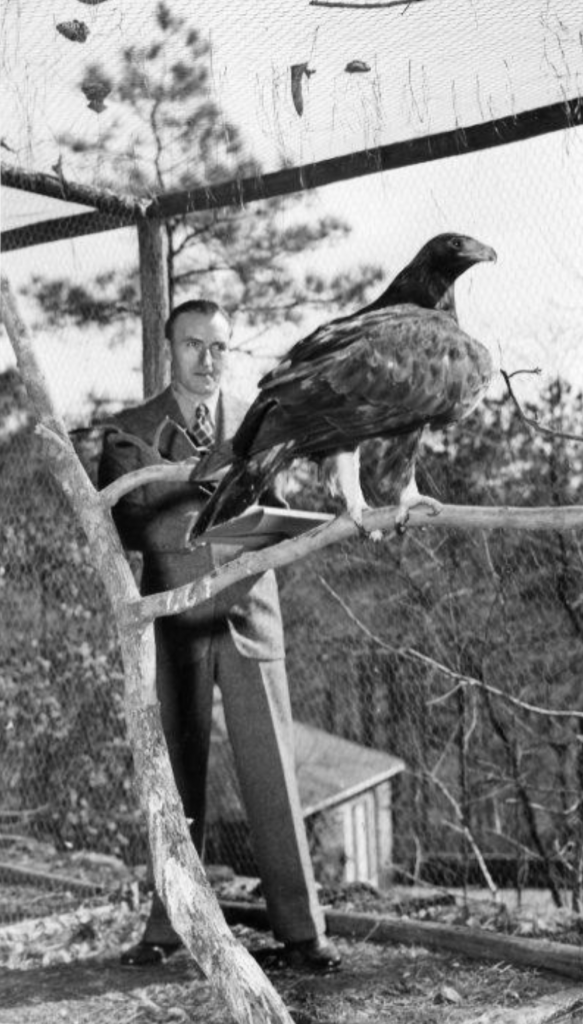
The couple settled into a small apartment and survived financially through commissions acquired through the prominent Atlanta architect Philip Trammell Shutze. Menaboni designed murals for Swan House, the home of Emily and Edward Inman that is now part of the Atlanta History Center. That work led to additional commissions for private homes, public buildings, and places of worship. Though they lived in a building with thirty-six apartments in midtown Atlanta, the couple developed a reputation for rehabilitating injured and abandoned animals, particularly birds.
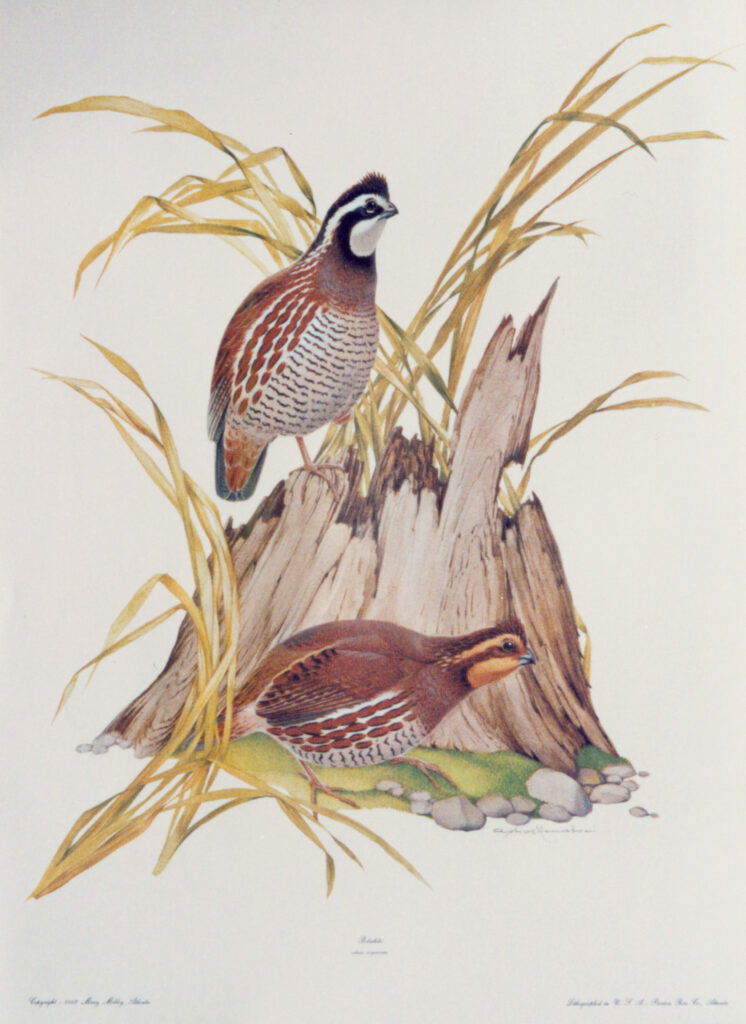
The childless couple longed for a place of their own, surrounded by nature. In 1939 the couple purchased a six-acre parcel of land in Sandy Springs, where they built first an aviary and then, in 1942, a house. Their property was known as Valle Ombrosa (“Shady Valley”), after the village Vallombrosa, located southeast of Florence, Italy, where Menaboni had spent summers as a child.
Bird Paintings
In 1937, during a lull in commissioned work, Menaboni had time to paint from memory a cardinal, which was inspired by the work of John James Audubon and Menaboni’s own careful observations of the bird in nature. This single painting opened a new avenue of work for Menaboni when Molly Aeck, a visiting interior decorator and friend, saw the painting and sold it to a client. Menaboni eventually obtained federal and state permits to capture rare and protected species in the aviary at Valle Ombrosa in order to study them. In his pursuit of accuracy Menaboni occasionally studied carcasses of birds and specimens in museum collections, but he preferred to capture an animal’s distinct personality by observing it in nature. He was meticulous in painting both the birds and the flora of their habitat. Using thin layers of oil paints to create a translucent quality—a technique he referred to as his “undercoat method”—he painted on wood, silk, canvas, and glass.
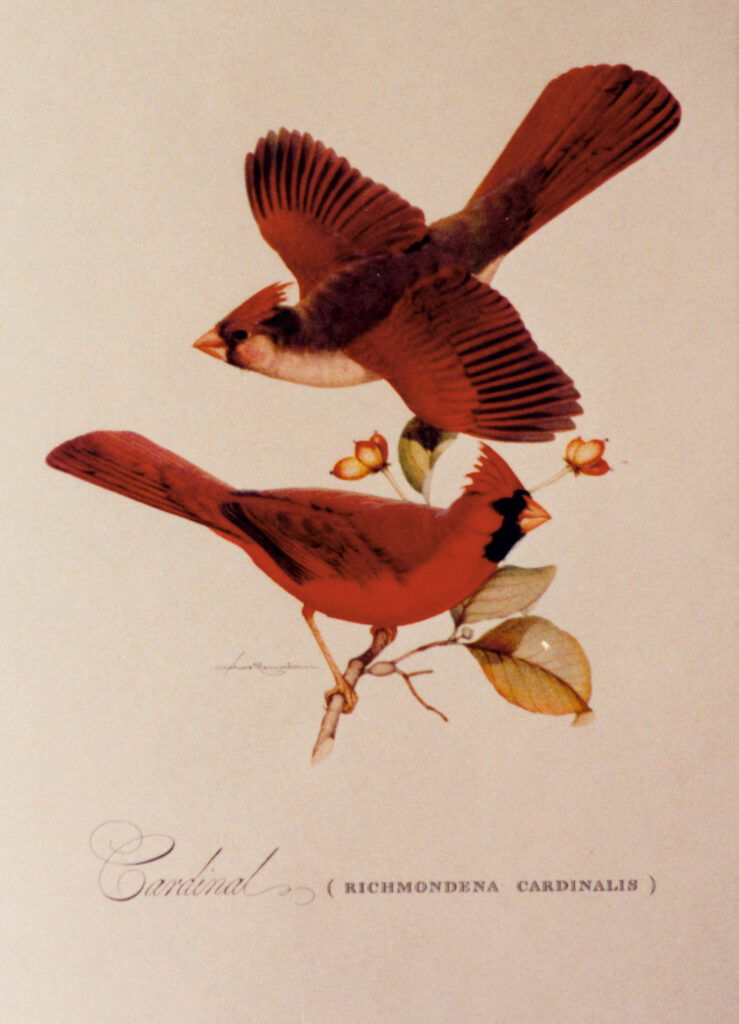
The height of Menaboni’s career occurred during the 1940s and 1950s, when he created yearly Christmas cards for Robert Woodruff, president of the Coca-Cola Company. His work appeared in advertisements and magazines, which led to the publication in 1950 of the book Menaboni’s Birds, with illustrations by Menaboni and text by his wife. He also illustrated the American bird article in The World Book Encyclopedia in 1957, and his work was exhibited widely during this time. His lithograph American Bald Eagle is included in Georgia’s State Art Collection.
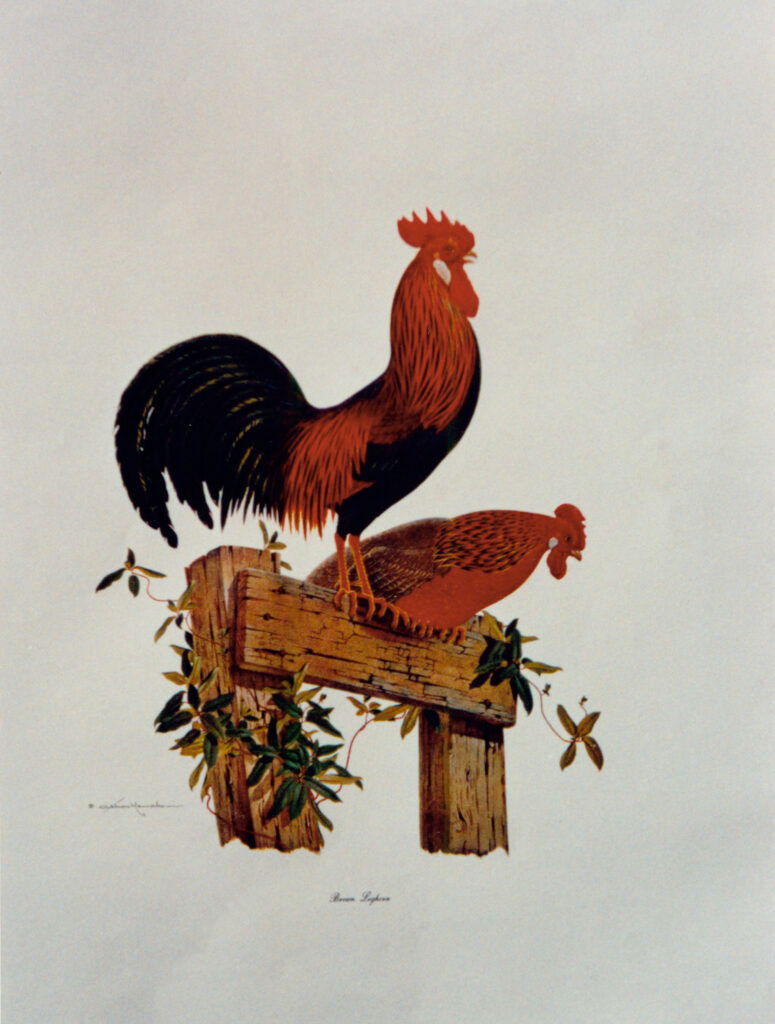
Menaboni died on July 18, 1990, from complications of a stroke. His wife died on August 10, 1993. The couple left their estate to Callaway Gardens. The largest archive of Menaboni papers and possessions is located in the Troup County Archives in LaGrange, and Menaboni collections are also found at both the Stuart A. Rose Manuscript, Archives, and Rare Book Library at Emory University in Atlanta, and the Hargrett Rare Book and Manuscript Library at the University of Georgia in Athens.
Exhibitions honoring Menaboni’s life and art continue to be mounted across Georgia.The Zuckerman Museum of Art at Kennesaw State University, a frequent exhibitor, has one of the largest collections of Menaboni’s work in the country. Other recent exhibitions have been held at the Albany Museum of Art, Berry College in Rome, and on Jekyll Island. In 2016 a permanent exhibition, Athos Menaboni: Nature in its Transcendent Detail, opened at Callaway Gardens.


